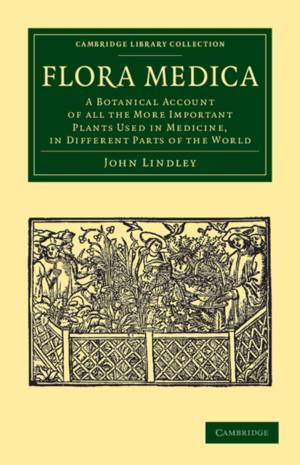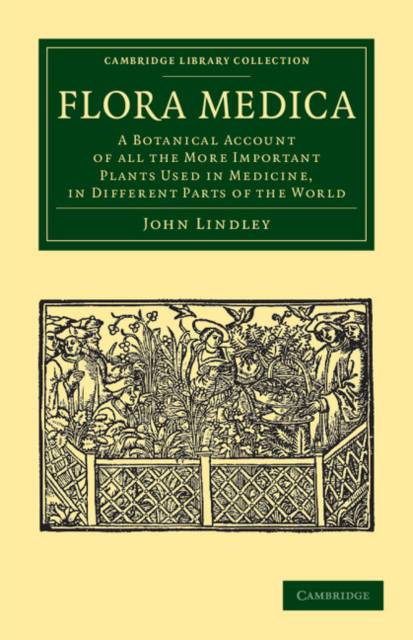
- Afhalen na 1 uur in een winkel met voorraad
- Gratis thuislevering in België vanaf € 30
- Ruim aanbod met 7 miljoen producten
- Afhalen na 1 uur in een winkel met voorraad
- Gratis thuislevering in België vanaf € 30
- Ruim aanbod met 7 miljoen producten
Zoeken
Flora Medica
A Botanical Account of All the More Important Plants Used in Medicine, in Different Parts of the World
John Lindley
€ 120,95
+ 241 punten
Omschrijving
John Lindley (1799-1865) was an English botanist and a leading authority on orchids. He attended Norwich Grammar School but was unable to afford university. Lindley's passion for botany helped him into the position of assistant in the herbarium of the naturalist and explorer Sir Joseph Banks. He soon established himself as a botanist of considerable talent, and was elected to the Linnean Society of London at the age of twenty-one. In 1822 he became assistant secretary to the Horticultural Society, and was elected Fellow of the Royal Society in 1828. He was Professor of Botany at University College, London, from 1829 to 1860. Published in 1838, Flora Medica is a systematic reference work written to help medical students understand the botanical characteristics and therapeutic properties of important medicinal plants from around the world. The book includes an appendix of indigenous names of Asiatic species, and a full index.
Specificaties
Betrokkenen
- Auteur(s):
- Uitgeverij:
Inhoud
- Aantal bladzijden:
- 676
- Taal:
- Engels
- Reeks:
Eigenschappen
- Productcode (EAN):
- 9781108038454
- Verschijningsdatum:
- 3/11/2011
- Uitvoering:
- Paperback
- Formaat:
- Trade paperback (VS)
- Afmetingen:
- 140 mm x 216 mm
- Gewicht:
- 843 g

Alleen bij Standaard Boekhandel
+ 241 punten op je klantenkaart van Standaard Boekhandel
Beoordelingen
We publiceren alleen reviews die voldoen aan de voorwaarden voor reviews. Bekijk onze voorwaarden voor reviews.







